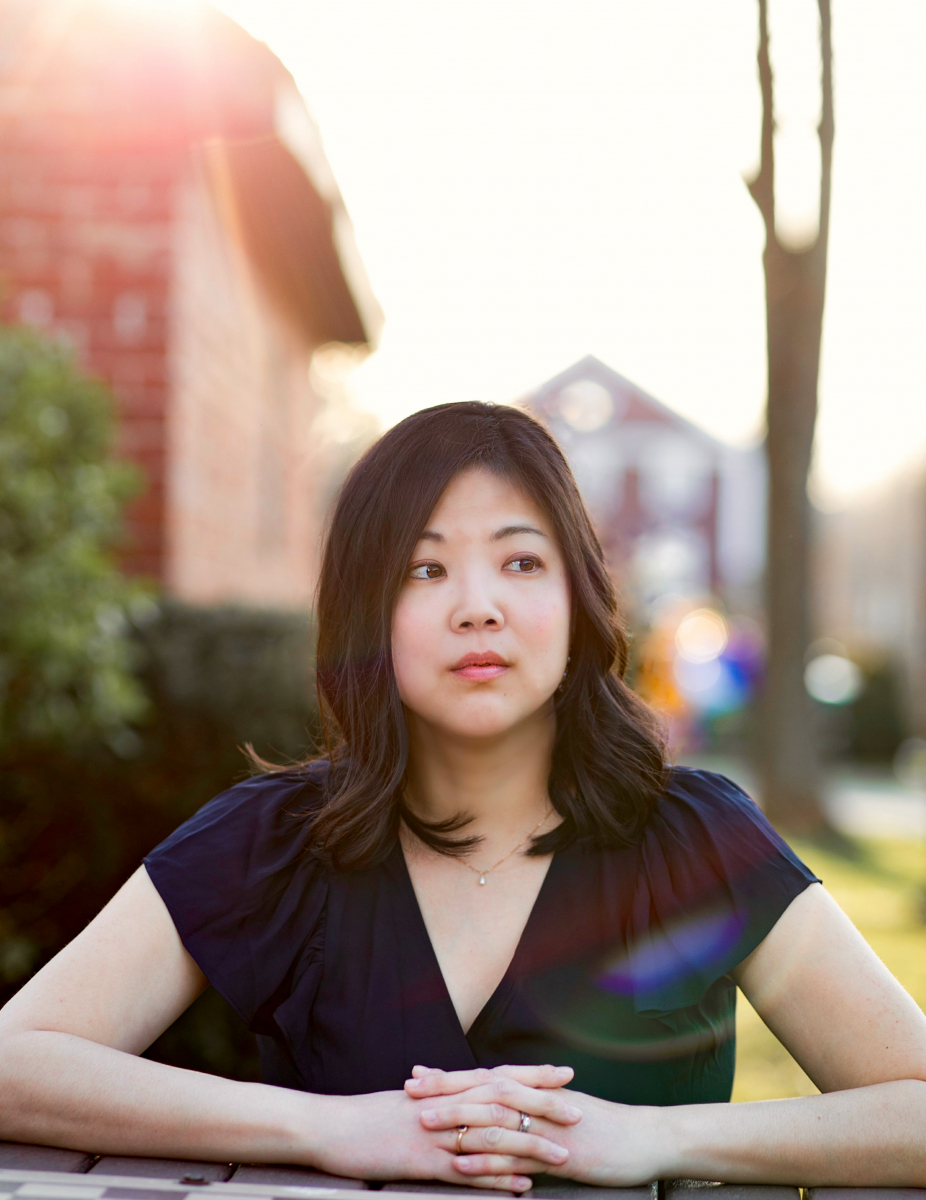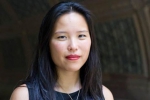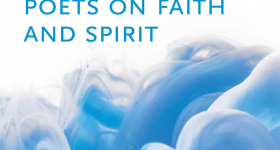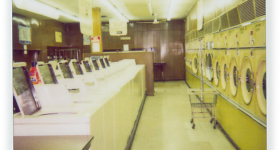For years, I skulked along the edges of the adoptee community. I read anything I could find by adoptees and combed online forums about adoption late at night wondering how these people could be so open about their adoption or frustration with their birth or adoptive families — how they could reach out to complete strangers over the Internet for support. I resisted talking about my own adoption, even with my adoptee friends. I wanted to convince myself that I didn’t grieve over parts of my adoption story, and most of all, that I didn’t need the support of those who experienced similar losses. When my editor asked me if I might want to interview Nicole Chung about her new memoir, All You Can Ever Know (Catapult), I accepted with an enthusiasm that belied a deep anxiety approaching dread. For so long I had prided myself on having control over my own narrative predicated on pretending not to care. But to read this book and to really engage with it, I knew that I had to open myself up to exploring those spaces that I so assiduously avoided thinking about, and most of all, feeling about. I wanted to do this, but the prospect was daunting.
All You Can Ever Know begins with Chung recounting the narrative of her adoption that she inherited from her adoptive parents: her birth parents were recent immigrants to the United States who couldn’t give her the life she deserved and decided that although it saddened them, they knew adoption was best for her. She was her adoptive parents’ gift from God. As Chung goes on to explain throughout the course of the book, the actual story of her adoption was much more complicated.
I had read somewhere that Chung had written an early draft of the book with chapter numbers, but she had eliminated them somewhere along the way and I was curious about how she had made that decision. She says she initially drafted the book chronologically, and when she was finished, she said, “I didn’t think it was bad.” But she wasn’t entirely satisfied with the structure, either. Then, she says, “I had a dream about rewriting it. I talked to my editor and said, ‘Don’t freak out, but I think I have to restructure the first half of the book.’ My editor, who is great, was like, ‘OK, I trust you! Show me.’”
 Chung moved the decision to search for her birth family closer to the beginning and eliminated the original chapter numbers. The new structure, Chung says, moved faster and reached more quickly “to the heart of the story, which was the search for information, or lost history.” The new structure also focused the memoir more sharply on the two central questions she wanted to answer — first, what it was like to grow up “as a Korean transracial adoptee in a white family, in a pretty homogenous place,” and second, “what happens when you decide the story you’ve been told isn’t enough for you, and you search and find so much more than you thought you would.” The final result is a network of textured and interwoven narratives that move seamlessly between past and present, in “layers,” as Chung describes them, between the formative moments growing up as an adoptee in a homogenous Oregon town to the birth of her first daughter and the search for her birth family.
Chung moved the decision to search for her birth family closer to the beginning and eliminated the original chapter numbers. The new structure, Chung says, moved faster and reached more quickly “to the heart of the story, which was the search for information, or lost history.” The new structure also focused the memoir more sharply on the two central questions she wanted to answer — first, what it was like to grow up “as a Korean transracial adoptee in a white family, in a pretty homogenous place,” and second, “what happens when you decide the story you’ve been told isn’t enough for you, and you search and find so much more than you thought you would.” The final result is a network of textured and interwoven narratives that move seamlessly between past and present, in “layers,” as Chung describes them, between the formative moments growing up as an adoptee in a homogenous Oregon town to the birth of her first daughter and the search for her birth family.
As I read, I found myself consistently nodding along in recognition. Chung was born the daughter of Korean immigrant parents to the United States, and I was adopted from Korea when I was 3 months old, but we both grew up daughters of adoptive parents who relocated from Ohio to fairly homogenous communities in the West, and so many of the moments she recounted were familiar to me — the questions about where I was really from and why my English was so good, and the racial slurs that kids tossed around on the playground. Chung and I talked about the weight of growing up in a place where racism might not have been blatant but was still present and manifest through exchanges like those on the playground. Those kids must have learned those slurs somewhere, and while our families might have accepted us as we were, the greater community often made us painfully aware of our difference. Familiar, too, were the deep hungers that she recounted: the desire to be around someone who looked like her, and — perhaps most of all — the compulsion to write in order to create a world for herself that she didn’t have in real life.
Chung writes early on in the memoir: “the most important thing my expanding creative life gave me as a girl, in terms of survival, was the permission to imagine a world I simply could not see in my white hometown. Only on the page could I build and live in a world that felt better, that felt right.” I, too, wrote stories: pages and pages on the scraps of dot-matrix computer paper that my father brought home from the Forest Service office where he worked. I also insisted on stapling them into book form; something about being able to hold an object, something that looked and felt like a book, felt immensely important. Maybe it was my way of making something as intangible as a narrative into something concrete and therefore “real.” Until I read Chung’s memoir I never thought about it in this way — that writing stories was a way to build a world that provided a place for me.
In an essay for Longreads, “How to Write a Memoir While Grieving,” Chung contemplates the sudden loss of her father during the latter stages of writing her book. “I often wonder if I would have become a storyteller if not for adoption,” she writes. “On the one hand, that is in my genes: my birth father is a writer. Yet I do think it was partly feeling like an outsider — not just in my white family, but in the place where I grew up — that made me almost desperate for a way to express who I was.”
Storytelling continues to be a vital aspect of Chung’s career as a writer and now as an editor — a journey that began, in some ways, at Hyphen. About the time that Chung first made contact with her birth family, she also joined Hyphen as an online editor. “I wanted to be involved with Hyphen specifically because it is a magazine devoted to stories of Asian America,” she says. “I wanted the chance to work with and collaborate with other members of my community, even if it was just online.”
Chung credits her work at Hyphen as a stepping stone to joining The Toast as an associate editor and then managing editor, which eventually led her to her current position as editor in chief of Catapult magazine. In addition to being a formative step in her career, Chung says, volunteering at Hyphen was also crucial to finding the kind of community that she’s always longed for.
“I feel like I talk about community so much as a writer, it’s a drum that I beat too often; not only would I not have a career without communities like this, without these spaces, but I also wouldn't have so many people who matter so much to me,” she says. “I’m very, very grateful, especially as someone who grew up without communities like this. As an editor, as a writer, they mean so much to me, and I don’t take them for granted.”
Even with the advent of the Internet and an increasing number of platforms for adoptees to share their experiences, there are still many more stories left to tell. As Chung writes in her memoir, “In most published stories, adoptees still aren’t the adults, the ones with power or agency or desires that matter — we’re still the babies in the orphanage; we’re the kids who don’t quite fit in; we are struggling souls our adoptive families fought for, objects of hope, symbols of tantalizing potential and parental magnanimity and wishes fulfilled. We are wanted, found or saved but never grown, never entirely our own.” And while Chung says she doesn’t want adoptees to feel pressured to tell their stories, she wants to make the multiplicity of adoptee stories more visible, which she has worked toward in the “Adopted” essay series she curates at Catapult.
At the end of our interview, Chung warmly and gently asked about my own adoption story. I was so surprised for a moment that I wasn’t sure what to say and then rambled through a quick version — Seoul to Montana/Colorado to the present day. As I told it, I became aware that although I’ve told that version of the story many times, there’s still a lot that I leave out: much of the difficulty and confusion that doesn’t contribute to the perfectly packaged narrative that I’ve told over the years. In the memoir, Chung speculates that offering her adoption story was a “way to gain acceptance,” as “both the excuse for how [she] looked, and a way of asking pardon for it.” I wondered if this kind of programming is what makes it challenging for me to tell my story on my own terms now.
Although my story is not Chung’s story or anyone else’s, one of the values of this book is that it shows that while adoptees may have much in common — there is no one story or way to tell a story. I always worried when I was talking to other adoptees that I wouldn’t say the right thing, that I would bore them or reveal that I didn’t feel the “right way” about my family or history. At the heart of it, I’m terrified I will discover, again, that I don’t quite belong. But what Chung shows us through her memoir is that though all of our stories are different, there is space for everyone.
The desire for belonging, as Chung mentioned in our interview, isn’t just particular to adoptees — although we perhaps live it out in particular ways. But the quest to learn how to tell one’s story, to come to terms with the fact that the narratives we’ve been given aren’t enough — and the need to write one’s own story — is an experience that many people understand. Adoption doesn’t explain everything about me, but I think at this point in my life it’s not necessarily explanation that I ache for, but rather recognition, that freedom that comes from someone else saying, “Our stories might not be the same, but I see you, I hear you, I recognize you.”
I’m still learning how to tell my story, which mostly feels like a draft that I’m constantly rewriting. Sometimes I’m better at talking about it; other times, it feels really awkward. Sometimes I feel so overwhelmed I need to set it aside for a moment. But I’m recognizing that all of those feelings are OK. For those of us who have felt for years that we owe explanations, I’m grateful for the broadening scope of stories about adoption and for Chung’s memoir in particular — which in addition to being named one of Electric Literature’s “46 Books by Women of Color to Read in 2018” and one of Huffington Post’s “60 Books We Can’t Wait to Read in 2018,” among other honors — was named a Barnes & Noble Discover Great New Writers Selection, an Indies Introduce title and a Junior Library Guild selection in the Adult Crossover for High School category. It is exciting to know that the book will be available to younger adopted readers; they will have access to one more story that Chung and I never had access to as young, aspiring writers. They’ll be a little less alone.
“This one book can’t hope to answer all those questions [about adoption] or head them off at the pass; even if all of these people read it, I know adoptees would still get these questions,” she says. “But I think the more stories there are, the less pressure there is on one person or one story to answer all your questions about an issue. We absolutely need more.”










Comments